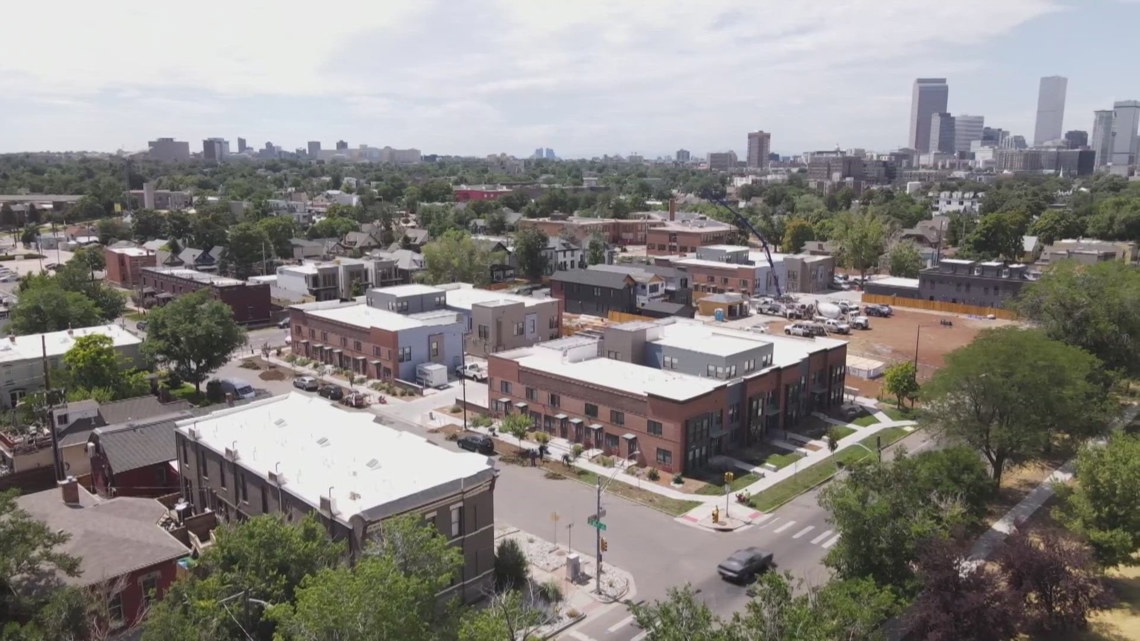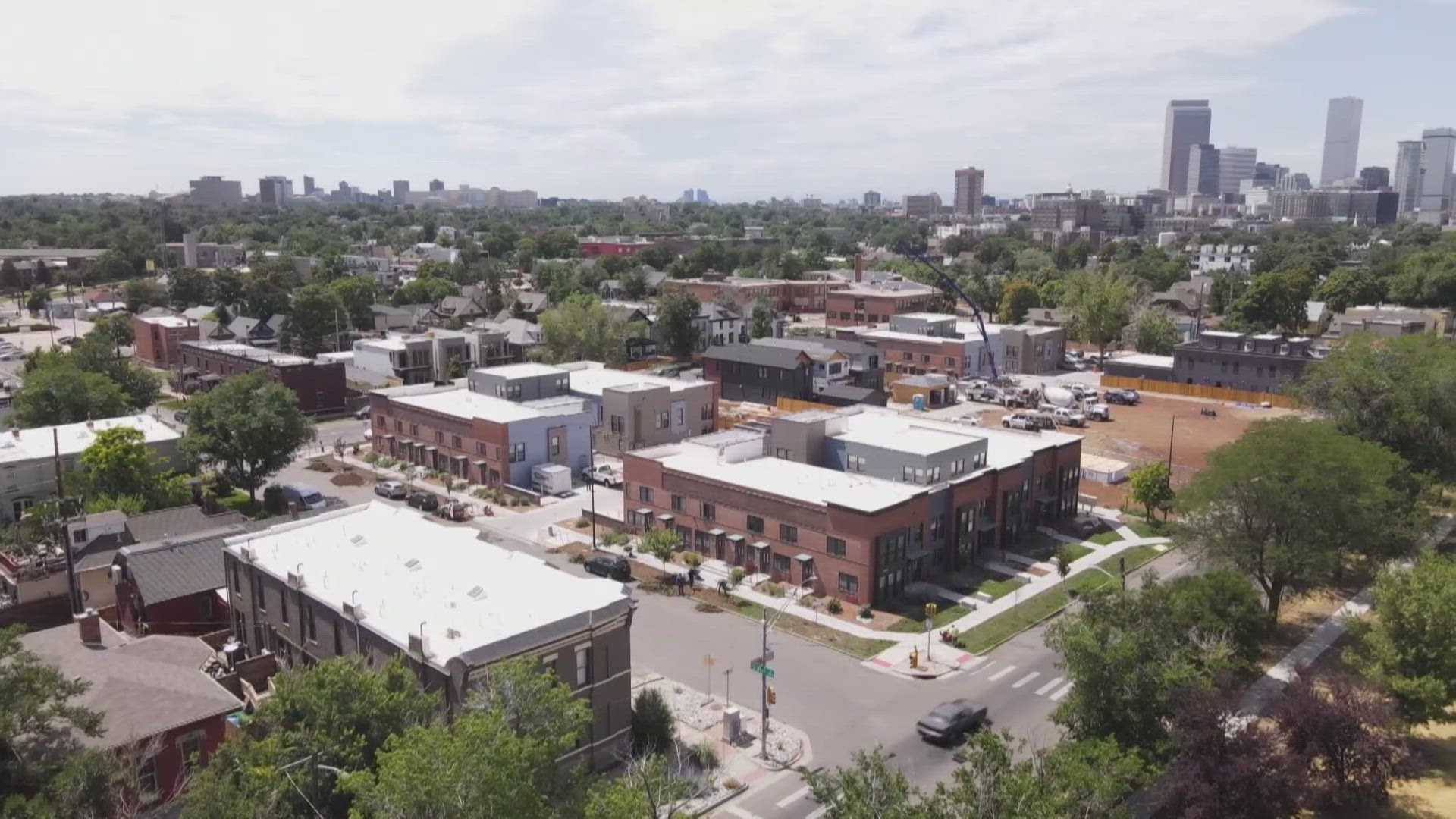DENVER — Climate experts are worried about some vulnerable Denver neighborhoods during the summer heat.
In particular, the city of Denver said they are watching what's known as the "inverted L" that includes parts of north Denver and west Denver. It's an area built with a lot of pavement and not a lot of trees, so there isn't much shade.
Climate experts with the city also said many homes don't have AC and windows that help during extreme weather.
"Those parts of neighborhood, parts of Denver, can be nine to ten degrees hotter than the rest of the city, " said Lis Cohen with the Climate Action, Sustainability and Resiliency office. "So when we are talking temperatures 100 degrees across Denver, you're talking about temps closer to 110 in those areas."
These are also areas that have historically been underinvested in going back decades.
The practice of redlining starts in the 1930s when people were denied mortgage loans or it was difficult to get one so people couldn't buy homes and build wealth. That disproportionately impacted minority communities.
We are still feeling the impacts of it today. There is a lack of resources in these neighborhoods and also not enough trees and too much concrete and pavement.
The city's climate action office said some studies show as many as 49,000 Denverites could be dealing with temps that are nine degrees hotter.
When you hear advice like going to the rec center or mall to cool off, Cohen said remember people need to find a safe way to get there as well.
Climate experts aren't the only one's worried.
South Metro Fire and Rescue has more workers on duty to respond to calls during summer heat waves, for a couple of reasons.
One is to cycle through firefighters to take breaks in this heat. Firefighters also know there is a greater risk of fires spreading quickly, specifically wildfires since they know it's going to be dry and breezy.
On that note, the level of dryness in South Metro's jurisdiction has also changed over the years.
"Almost entire roughly 300 square miles is around 32 percent drier now than it was previous climate period," said Eric Hurst with South Metro. "Looking at all different factors. We know it's warmer and drier and that's concerning."



